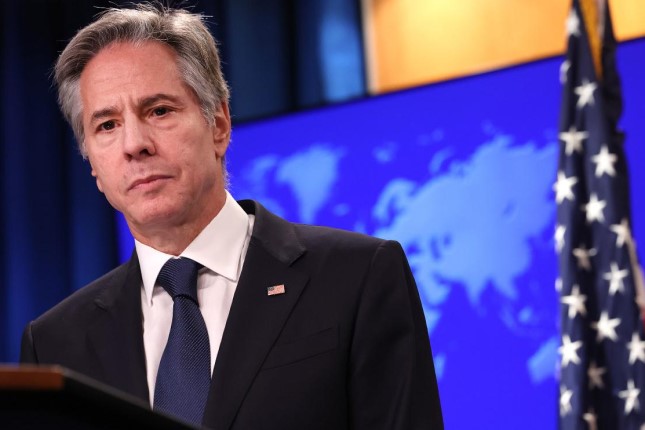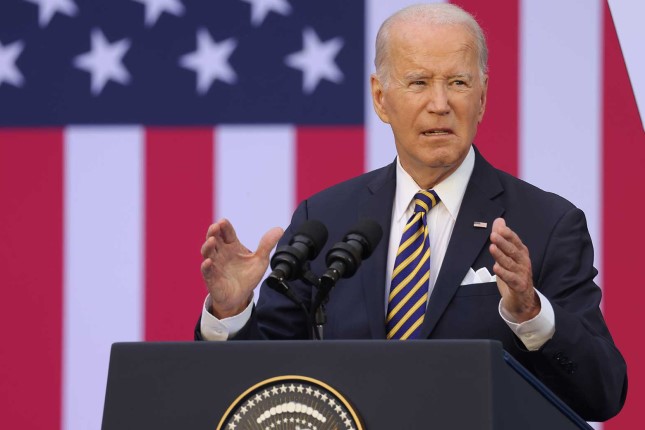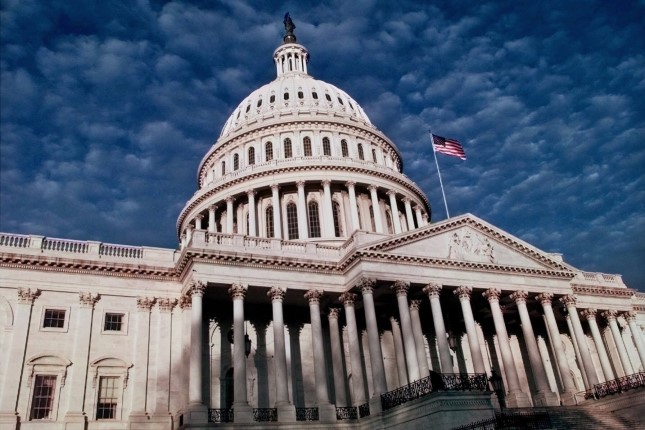The standoff between Israel's government and its opposition has been continuing unabated. The recent mass protests, with violent clashes with the police and blocking of motor roads by the rioters, were sparked by the government's reforms that had sought to curb the powers of Israel's Supreme Court and that of the judiciary-appointed legal advisors. Through this reform, the ruling coalition that is a national government at its core is seeking to rescue the state from the grip of the ultra-left agenda that is leading Israel to its ruin.
At present, Israel is not being ruled by its legislative branch of power embodied by the Knesset, or by the executive branch in the form of the Cabinet, but by the nation's judiciary system. The brain behind this system is jurist Aharon Barak, its body is Israel's Supreme Court, District Courts, and Magistrate Courts, and its hands are represented by the Office of the State Attorney and a set of judicial exemptions.
All of this is the result of a judicial coup staged by Barak between 1995 and 2006 during his tenure as President of the Supreme Court of Israel, that boils down to the arbitrary imposition of a host of rules contrived by judges that have no basis in the country's legislation.
This includes the right of any judge to receive any information on any matter and to pass judgments on any issue of their choosing. The law is nothing more than a frame that a court can use to adjudicate an issue as it sees fit. The court has been vested with the power to overturn laws passed by a popularly elected parliament and to pass judgments on the ways of implementing Israel's key laws. What lies at the "heart" of such rulings is a judge's personal conviction, his or her idea of values, of what is appropriate and what is not, without any criteria to go by.
What is more, a rule has been concocted stating that the advice of a judicial advisor attached to every minister, city mayor, or manager of a public company is legally binding. What this means is that, at the end of the day, any decisions taken at any government office or any agency are not adopted by elected representatives of the people, or by those appointed by the parliament or by the government, but by the representatives of the judiciary, the people who were not elected by anyone.
Supreme Court judges, as well as all other judges of the courts of general jurisdiction, get appointed by the Judicial Selection Committee. The appointment procedure is de facto controlled by members of the judiciary. Nothing like this can be found anywhere else in the world, other than in Israel, where the judiciary has subsumed control of the entire country.
It is worth noting that the Supreme Court represents the interests of Israel's left, defined so on the basis of their origins, culture, values, and agenda. And this is evident in its rulings.
To provide a few examples, Israel's Basic Law: The Knesset says that no individual or anyone running on a party ticket would be eligible for running for parliament if they don't recognize Israel as a Jewish and democratic state. Despite this qualification, the Arab political party Balad and Islamic Movement, a branch of the Muslim Brotherhood, have been successfully running for the Knesset and setting up parliamentary groups of their own. The court has allowed them to do that, based on its own interpretation of the law.
Thousands of immigrants have arrived in Israel from Africa and set up camp in the south of Tel Aviv. The court banned their deportation back to their countries of origin. Because of this decision, law is being flouted in the southern neighborhoods of the city, where women get raped, and life is generally organized the same way it would be in a third- or even fourth-world country.
This is a state of play that affects not only politics and city life, but also the economy. A court can arbitrarily invalidate any contract entered into by businesses, causing many entrepreneurs to make arrangements that any potential disputes be settled in foreign jurisdictions, such as the United Kingdom or the United States.
And yet the number of right-wingers in Israel has been growing exponentially over the past 30 years as a result of high birth rates coupled with low rates of emigration from the country within the right-wing community. In contrast, the left has been experiencing lower birth rates and high rates of emigration. Eventually, this led to a fundamental change with the right now outnumbering the left and the Arab communities put together.
Following the most recent Knesset elections, right-wing politicians managed to forge a coalition that has no need for either leftists or the Arabs. Those who are commonly regarded as right-wing had won 75 seats in Israel's parliament out of a total of 120.
In the context of decades-long processes of country-building, this signals that the power of the judiciary that had been initially consolidated to an unprecedented degree has ultimately waned to a point where the public chose to vote for Binyamin Netanyahu, a contender for the post of the nation's prime ministerial who is facing several criminal investigations. People seem to no longer trust the office of the general attorney or the country's courts.
The public refuses to believe that the criminal cases against Netanyahu are genuine. After all, all criminal charges against those who had aligned themselves with the leftist agenda and had not joined the government, such as Avigdor Lieberman, the leader of Yisrael Beiteinu, or Israel Our Home, party, have been dropped, with no explanation provided.
At present, the situation is developing in such a way that the majority of the Israeli people support the right, while the state is being controlled by a junta of 15 judges who govern it according to the values of the left. The actions of the government are not a reform of the judiciary, but rather an attempt to rectify the damage caused by Aharon Barak's coup. But the left has refused to accept the choice of Israel's voters. They want to continue ruling the country through its judiciary system.
For one, former Prime Minister Ehud Barak has called for disobedience and practically a civil war. Public protests have been going on for several months now. The opponents of the reform have the support of the street mob, of the country's hi-tech industry, and of its military. They are very vociferous in the media, having been emboldened by a very strong show of public support from the United States and the European Union.
It is however totally unacceptable for the mob to rule a nation. The only protest that has to count is one that takes place at polling stations. So what if 150,000 demonstrators took to the streets? That is only the equivalent of enough votes to elect just two members of the Knesset. Over two million people cast their votes in favor the ruling Likud party alone. What are 150,000 people compared to the millions who voted in the elections? Nothing, a zilch.
There is much clamor going around, but the protesters are not the bearers of the final truth. The truth is determined on election day. Leaders of the opposition do not think about the good of the country, the only thing that matters to them is their own power.
One can only hope that the current government can stand up to the challenge of having to preserve the Jewish and democratic nature of the state of Israel, lest it should suffer the same fate as France, the United Kingdom, Belgium, the Netherlands, and Spain did, all of whom had fallen victim to illegal immigration and foreign cultures. All political conflicts must be resolved within the walls of parliament. If people keep squabbling with each other in the streets, the Lebanonization of Israel will continue, and the country will fall apart.
































